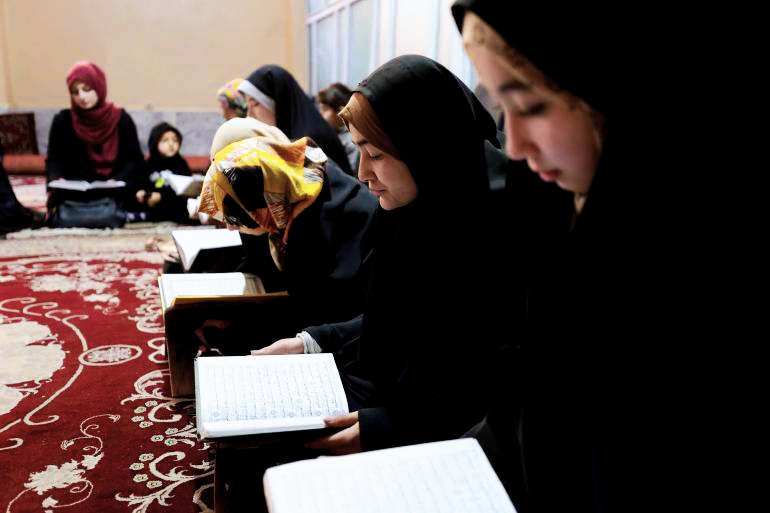In a new development that deepens the education crisis in Afghanistan, informed sources revealed that the leader of the Taliban movement Hibatullah Akhundzada issued orders to prevent girls and women from joining religious education, in a step described as more stringent than previous policies that closed secondary schools and universities to girls since the movement took control of the country in August 2021.
According to reports, the decision was issued verbally during a cabinet meeting held last week in Kandahar, the main stronghold of the Taliban leadership, where Akhundzada directed the ministries of education and higher education to gradually stop enrolling female students in religious schools, starting with not issuing graduation certificates for girls currently enrolled in those schools.
* "Religious schools teach modern subjects"
The same sources indicated that the motivation behind the decision was information received by the movement's leader indicating that some religious schools had begun to teach "modern" subjects such as mathematics, science, and languages, prompting Akhundzada to consider these institutions as "religious schools in name only," and therefore not in line with his strict religious vision.
* Sharp disagreements within the cabinet
This decision did not pass quietly within the cabinet, but rather sparked widespread controversy and anger among several ministers, who expressed their disappointment, especially after expectations had indicated the possibility of reopening girls' schools this year.
Some ministers confirmed that the decision contradicts the teachings of Islam, citing Quranic verses and prophetic hadiths that call for education for both genders, considering that depriving women of education violates Sharia.
In response, Akhundzada demanded that ministers provide "clear legal evidence" justifying a mature woman's departure from her home, a position he had previously adopted in similar situations, especially when issuing the decision to prevent university education for girls.
* Accusations of implementing a "foreign agenda"
The discussion within the cabinet was not without tension, as some ministers accused the movement's leader of "implementing a foreign agenda" aimed at undermining the legitimacy of the Taliban both domestically and internationally, considering that these policies would lead to increased public anger and more international pressure.
* Ongoing international condemnation
Since the Taliban returned to power on August 15, 2021, after the withdrawal of U.S. forces, the movement has imposed a strict interpretation of Islamic law, leading to severe restrictions on women and girls, who have been banned from education after the sixth grade, from most jobs, and from visiting many public places, including parks.
These policies have been met with strong condemnations from human rights organizations, the United Nations, and Western governments, which considered that depriving women of education, work, and public life constitutes a blatant violation of human rights and "systematic discrimination based on gender."
* Uncertain future
As these measures continue, uncertainty grows regarding the future of Afghan women under Taliban rule, at a time when opposing voices are rising within the government itself, amid fears of internal divisions that could undermine the movement's cohesion in the future.

